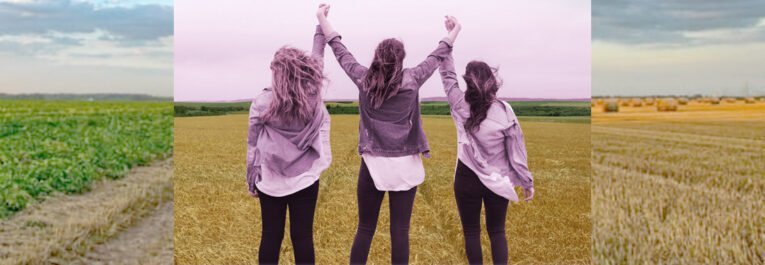Coordinadora de Organizaciones de Agricultores y Ganaderos (COAG) and Confederation of Rural Women (CERES) raise awareness of women farmers and livestock breeders visible in the mobilization and negotiation process.
Land managed by women receives only 3 out of every 10 euros from the Common Agricultural Policy (CAP). In March this year, on the occasion of Women’s Day, COAG and CERES denounced the difficulties faced by female-owned farms in accessing agricultural aid. These organizations demand a modification of the current CAP and Rural Development Plans (RDP) to truly introduce the gender perspective in their design. Under the current scheme, farms owned by women farmers and livestock breeders are marginalized because they are smaller in size and have ineligible production. The demands of women farmers and livestock breeders were visible in the mobilization and negotiation that took place before the EU, the Ministry of Agriculture, and Autonomous Communities.
According to data from the Spanish Agricultural Guarantee Fund (FEGA), the proportion of CAP aid received by women-owned farms significantly lags behind that of men, with only 27.5% of direct aid and 26.34% of Rural Development aid going to women.
In a press release they issued on the 8th of March, COAG and CERES asserted the need to analyze the gender perspective in these programs to promote equality and counter rural depopulation. Current aid schemes are designed with a male bias, overlooking the diverse models of women-owned farms, which are often smaller and engage in alternative livestock production ineligible for aid. Inmaculada Idáñez, head of COAG’s Women’s Department and CERES President, stressed the importance of pre-establishing equal opportunities and adapting regulations to accommodate the realities of women-owned farms.
The statement also called for:
- Fair prices for food covering production costs.
- Prioritization of small and medium-sized family farms in agricultural policies.
- Europe’s commitment to food security and sovereignty.
- Strengthening support for initiatives fostering rural economic and social development.
- Incentives and improved access for young people and women entering the agricultural sector.
- Agricultural insurance system reform to address climate change impacts like droughts.
- Promotion of sustainable production models balancing profitability with environmental preservation and biodiversity.
This is an edited version of the Press release from COAG and CERES
This post is also available in Español.

